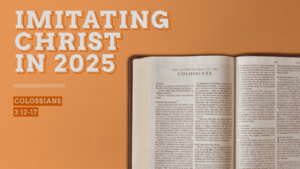The Book of Judges is an extraordinary journey filled with risks, perseverance, and valuable rewards. As we delve into this book of the Bible, it is important to learn from its content, which portrays the depravity of humanity and serves as a powerful warning against living apart from the Lord. Join us on this captivating expedition that unveils the relevance of the Book of Judges in today’s postmodern society.
The Spiritual Journey in the Book of Judges
Before diving into the captivating stories of Gideon, Shamgar, and Samson, it is crucial to establish a solid foundation and context. Like any journey, preparation is key. It’s important to understand the historical and cultural backdrop of Israel and how it relates to the necessity of judges. It quickly becomes apparent that there will be challenging and convicting moments, but it’s clear that our God is faithful through it all.
Confronting Sin and Accepting God’s Grace
Though the Book of Judges presents a raw and unfiltered portrayal of humanity’s depravity, exploring the themes and lessons therein can lead to significant conversations and transformation. We live in a world that downplays sin and avoids uncomfortable realities. But through the Book of Judges, we see it’s only in confronting our sin and turning back to God in repentance that we can be in right standing with Him. He is gracious to offer second chances to undeserving people, but it’s up to us to take them and accept His mercy.
The Book of Judges and the Modern Church
The Book of Judges serves as a mirror reflecting our present Christian culture within a postmodern society. We should not draw direct comparisons between ancient Israel and modern America, but rather acknowledge the similarities between Christ’s church and ancient Israelites living amidst a pagan culture. Recognizing this reality is crucial to more deeply understand and apply the Book of Judges.
It is essential to comprehend the challenges of living in a society that questions absolute truth and promotes relativism. Postmodernism’s influence fosters fluidity in truth, challenging long-held beliefs and impacting crucial aspects of our society, such as the sanctity of human life and the nuclear family. By understanding this postmodern context, we can better comprehend the urgency of the Book of Judges’ message and strive to align ourselves with God’s truth.
The Dumpster Fire of Judges
A fitting description of the Book of Judges would be a “dumpster fire.” It begins with Israel making mistakes and descending into sin, ultimately facing divine discipline. This historical warning serves as a reminder of the dangers of living independently from the Lord, not only for individual believers, but also for churches and communities. The Book of Judges serves as a powerful cautionary tale, urging us to avoid being influenced by the surrounding culture. By remaining steadfast in our faith and pouring out the Gospel into the world, we can prevent our churches from becoming metaphorical dumpster fires.
Repentence Leading to Restoration
Repentence is the first step toward transformation. In the Book of Judges, we witness the nation of Israel becoming keenly aware of their dangerous situation. They find themselves caught in a vicious cycle of rebellion and oppression, their spiritual apathy and moral decay leading to disastrous consequences. As the stories unfold, the Israelites gradually awaken to the gravity of their choices and the urgent need for change. This awakening stirs within them a renewed sense of repentance and a desire for restoration. They begin to recognize the consequences of their disobedience and seek deliverance from the oppressive forces that surround them. It’s this part of the story that shows us how powerful repentance can be in personal and collective restoration. Transformation begins as people turn their hearts back to the Lord, setting the stage for God’s redemptive work in the lives of His people.
Next Steps
The Book of Judges takes us on a profound journey of repentance and restoration. Through its captivating stories and cautionary tales, we are confronted with the depravity of humanity and the consequences of straying from God’s truth. This knowledge equips us with the necessary preparation, understanding, and guidance to navigate the challenging content of Judges. By recognizing the parallels between ancient Israel and our modern society, we can gain insight into the pressing issues facing the church today. As we draw near to the Lord and turn away from our sin in repentance, we can experience His hope and redemption throughout every aspect of our lives. This gives us a renewed commitment to live under God’s kingship amidst a morally complex world.




